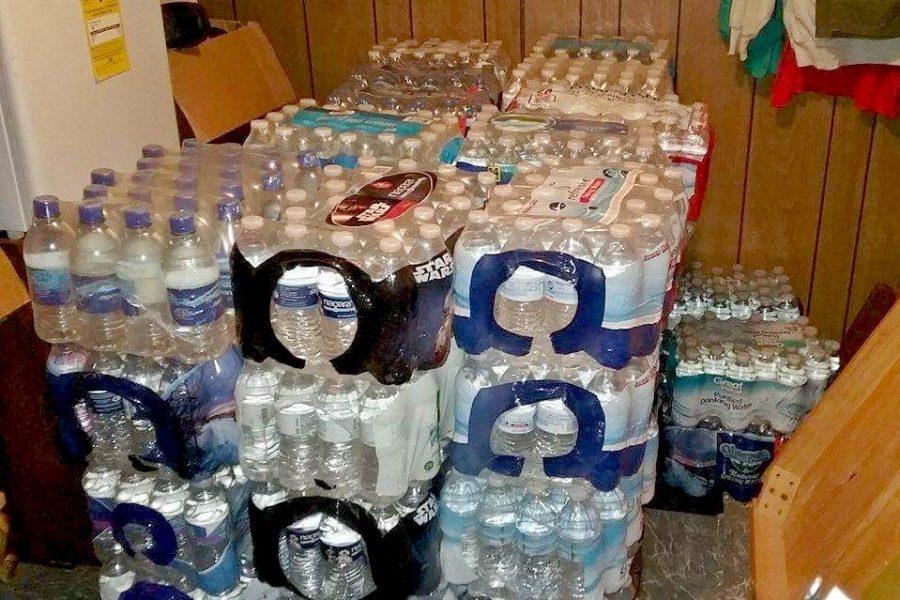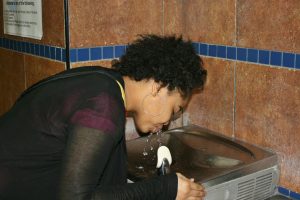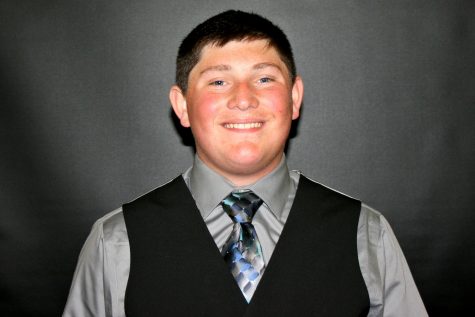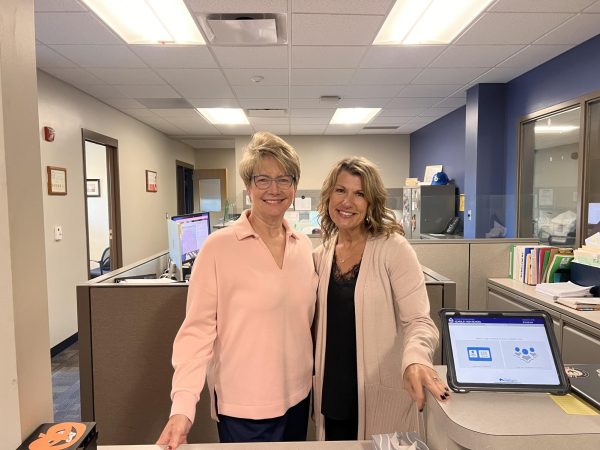Lack of media attention over water crisis angers students
IMAGE / Aver McKay
Senior Skylar Thames has been using bottled water for more than a year. The water became leached with lead starting in April 2014, but it was not until October 2015 that the government informed the citizens not to drink it.
Kearsley students living in Flint still continue to live a life of hardship with lead-tainted water.
After a year of the Flint water crisis being known to the media, almost nothing has changed for those living in households with lead running through their water pipes.
Flint Mayor Karen Weaver recently announced that Phase 3 of her FAST Start initiative plan to replace lead water pipes with new copper pipes has just begun. Yet thousands of Flint residents still suffer.
Senior Skylar Thames is one of those residents who is still living with lead water.
“There’s still children in my household who are younger and we still can’t use the water because we don’t know the condition of it,” Thames said. “It’s a struggle because it’s tempting (to use the water). We use water on a daily basis. To be without clean water is unfair.”

Bottled water is the main supply of water for many Flint residents today, like these in senior Skylar Thames’ home. The water has been contaminated for 32 months.
Most Flint residents are still stuck using bottled water for their basic needs, including drinking, showering, doing the dishes, and other chores. To many residents, it seems like the media forgot there was a problem in Flint.
Sadly, the media doesn’t seem to care about Flint and its citizens anymore. It was a popular story to cover when it first began, yet now only the local news stations talk about it occasionally.
Thames is furious about the lack of recent media coverage.
“I feel like I was dropped like a bad habit because we’re still going through the Flint water crisis,” Thames said. “I feel that we shouldn’t be left behind and put on the back burner because we’re just as important as other (current) issues.”

Senior Rayanne Churchill also feels the same way about the issue.
“I’m irritated by it because they’re just disregarding the fact that we’re still effected, and it feels like we don’t matter to the government,” Churchill said.
Churchill also noted that the places she and her family have gone to receive free water from in the past have now stopped giving it out.
“We have to go out and buy packs that cost two or three dollars a pack now,” Churchill said. “We buy packs twice a month, and it’s hard on our family because they’re expensive.”
Churchill spoke about how she uses bottled water for ordinary daily tasks, which is challenging.
“Life’s difficult because we use water in everything we do,” Churchill said. “We use bottled water for cooking, brushing our teeth, and for the dog’s water. We still use the shower even though there’s lead in the water because our area’s water isn’t as bad as others.”
Thames agrees with Churchill. Thames noted how hard it is to accomplish tasks that before nobody had to really put time into preparing for.
“I use four water bottles in order to brush my teeth and wash my face,” Thames said. “I have to heat up the water in a bowl first in order to do anything.”
The lives of these two Kearsley seniors remain as they have been for the last 32 months — they still have lead in their water, the problem is still not fixed, and they, like many people in Flint, are still suffering.

Senior
Birthday: April 8, 1999
Extracurricular activities: Robotics, quiz bowl
Hobbies: WWI, WWII, and Civil War reenacting; marching band
...







